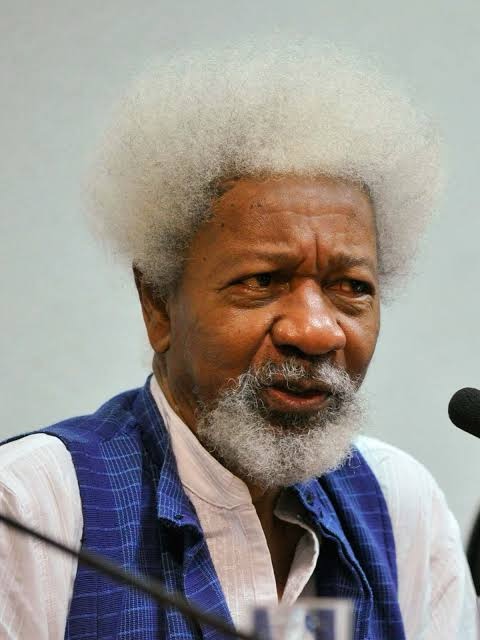Early Life and Education:
Wole Soyinka was born on July 13, 1934, in Abeokuta, Nigeria. Growing up in a politically charged environment, Soyinka’s early years were shaped by Nigeria’s colonial history and the vibrant culture of his Yoruba heritage. He attended primary school in Nigeria before moving to the United Kingdom for higher education. Soyinka studied English Literature at the University of Leeds and later continued his studies at the University of Ibadan in Nigeria. It was here that his interest in theatre, literature, and the arts began to flourish.

Career and Literary Achievements:
Soyinka’s literary career began in the late 1950s and quickly rose to prominence as he engaged with political themes and societal issues through drama, poetry, and prose. He is best known for his plays, many of which explore the intersection of African traditions, colonialism, and political struggles. His first major work, A Dance of the Forests, was performed in 1960 as part of Nigeria’s independence celebrations. His later works, including The Man Died: Prison Notes of Wole Soyinka and Death and the King’s Horseman, cemented his reputation as one of the most important playwrights and thinkers in African literature.
In 1986, Soyinka was awarded the Nobel Prize in Literature, making him the first African to receive the prestigious honor. His writing blends traditional African culture with Western forms of theatre and literature, and his work has been translated into numerous languages. Soyinka’s influence spans across literature, theater, and social activism.
Political Activism and Imprisonment:
Beyond his literary work, Soyinka is also renowned for his active role in Nigerian politics and his relentless opposition to oppressive regimes. His activism, particularly during Nigeria’s military dictatorship in the 1960s and 1970s, led to his imprisonment. In 1967, he was arrested for attempting to negotiate a ceasefire during the Nigerian Civil War and spent nearly two years in solitary confinement. Despite this, Soyinka remained a vocal critic of the Nigerian government and international issues related to human rights, corruption, and social justice.
His activism also led him to voice his opposition to apartheid in South Africa, as well as military rule in other African countries. Throughout his career, Soyinka has faced persecution and exile for his outspoken views but has remained a steadfast defender of free speech and democratic principles.
Legacy and Recognition:
Wole Soyinka’s influence extends far beyond literature. He is celebrated for his tireless advocacy for democracy, human rights, and the arts. In addition to his Nobel Prize in Literature, Soyinka has received numerous honors and awards for his work in both the literary and political arenas. His books and plays continue to inspire generations of writers, activists, and thinkers worldwide.
Soyinka is also a respected voice in global discussions on African identity, governance, and the future of the continent. His legacy as a writer, academic, and activist continues to inspire movements for justice, freedom, and equality, making him one of the most powerful and influential figures in the modern world.
A Living Legacy:
Wole Soyinka’s journey from a young, curious boy in Nigeria to one of the world’s most distinguished literary figures and political voices is a testament to his enduring commitment to the pursuit of justice, creativity, and societal progress. His works challenge, provoke, and inspire, reminding the world of the power of words and the unyielding fight for a more just and democratic world.